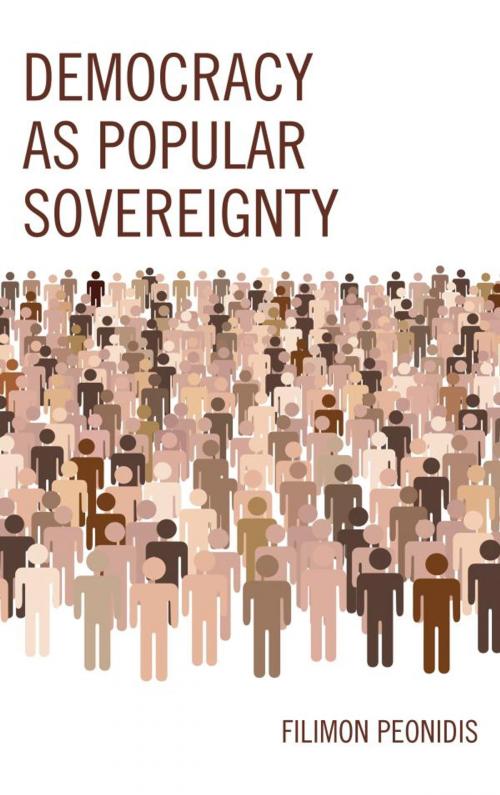Democracy as Popular Sovereignty
Nonfiction, Social & Cultural Studies, Political Science, Government, Democracy, Politics, History & Theory| Author: | Filimon Peonidis | ISBN: | 9780739179390 |
| Publisher: | Lexington Books | Publication: | August 15, 2013 |
| Imprint: | Lexington Books | Language: | English |
| Author: | Filimon Peonidis |
| ISBN: | 9780739179390 |
| Publisher: | Lexington Books |
| Publication: | August 15, 2013 |
| Imprint: | Lexington Books |
| Language: | English |
Although democracy is in principle associated with popular rule, in practice it is best described as rule by elected elites. This form of government is not only wanting from a theoretical point of view, but it also no longer seems to meet the expectations of large segments of the citizenry. This book offers a blueprint for an alternative democratic model, democracy as popular sovereignty. Starting with the idea that the people, generously defined, are sovereign when they rule as equally valuable and fully participating members of a self-governing collectivity, this model tries to describe the constitutional and institutional arrangements necessary to achieve a workable version of this idea in advanced democratic states. This implies among other changes a greater dose of direct democracy, the use of sortition and a different conception of representation. The overall argument developed combines insights, facts, and findings from normative political theory, empirical political science, democracy’s long history as well as from the recent burgeoning literature on participatory and deliberative democracy.
Although democracy is in principle associated with popular rule, in practice it is best described as rule by elected elites. This form of government is not only wanting from a theoretical point of view, but it also no longer seems to meet the expectations of large segments of the citizenry. This book offers a blueprint for an alternative democratic model, democracy as popular sovereignty. Starting with the idea that the people, generously defined, are sovereign when they rule as equally valuable and fully participating members of a self-governing collectivity, this model tries to describe the constitutional and institutional arrangements necessary to achieve a workable version of this idea in advanced democratic states. This implies among other changes a greater dose of direct democracy, the use of sortition and a different conception of representation. The overall argument developed combines insights, facts, and findings from normative political theory, empirical political science, democracy’s long history as well as from the recent burgeoning literature on participatory and deliberative democracy.















